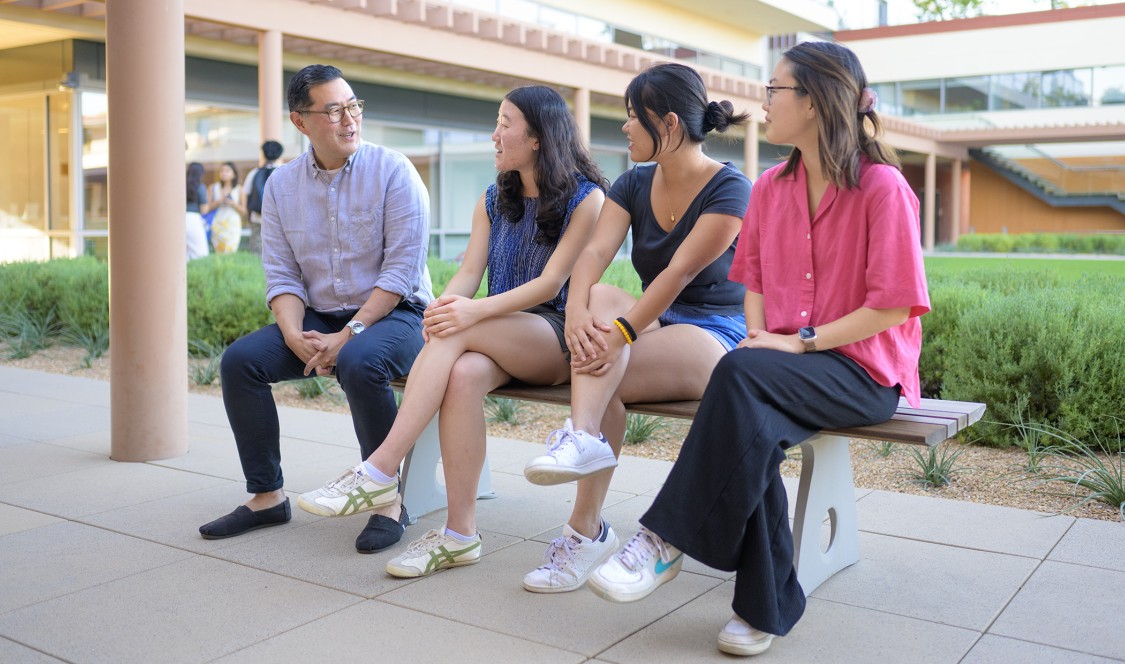How do you create an inclusive, sustainable life in a globalized economy?
That’s one of the questions that Professor Albert L. Park, Director of EnviroLab, is exploring as he leads his latest cross-disciplinary project, Sustainable Futures: Overcoming Disparities.
The project, which “tackles the relationship between globalization and sustainability, and imagines futures where globalization is more inclusive,” received a grant from the Japan Foundation, which Park will deploy to study elderly, disabled, and rural communities in Japan, the United States, and select Asian countries.

Park, who is Bank of America Associate Professor of Pacific Basin Studies at Claremont McKenna College, said that while “globalization as an economic phenomenon has been beneficial to many communities, who benefits from it has been uneven, particularly able-bodied versus disabled people, and young people versus the elderly.”
With the chief objective “to create models of learning and practice,” Park noted that partners on the project are organized into three teams, and include: Pomona and Scripps College faculty; academics and practitioners from Japan, China, Hong Kong, Thailand, and the United States; as well as CMC students.
One team will explore demographic changes, green energies, and smart cities in Asia, and the United States under globalization; while another team will look at dramatic changes to rural life and paths to economic, social, and cultural renewal; and the third team will examine elder care and technology, particularly how new technological innovations could assist older adults in areas where there is a population decline.
Park’s team will conduct a field research trip to Japan in Spring 2024 to study rural communities, where elderly and disabled people face similar challenges to those facing rural communities in the U.S. In addition, Park and this team will lead workshops, network meetings, and a major conference.
“There are a lot of similarities, particularly the lack of social services in these areas,” he said. “My team is specifically going to look at ways to bring more social and cultural services to rural communities, and especially to the older adults, who are mostly the ones populating these areas because the young people have left for the city.”
With support from CMC’s Office of the President, the Berger Institute for Individual and Social Development, the Gould Center for Humanistic Development, the Keck Center for International and Strategic Studies, and the Kravis Department of Integrated Sciences, Park plans to bring CMC students into multiple aspects of the project, to conduct research together, and create a deliverable.

Park said that Branwen Williams, director of the Roberts Environmental Center and the George R. Roberts Professor of Integrated Sciences: Environmental Science at CMC, will join the project, “looking at how climate change is impacting the way farmers are farming and the location of their farms, as climate change is pushing people to migrate in different ways.”
In addition, CMC History Professors Lily Geismer and Tamara Venit-Shelton will also participate in the effort.
Park sees the cross-disciplinary nature of the project “as a way to enhance faculty development, as well as student intellectual experience” and “equip individuals with the appropriate means to deal with changes, especially in a world facing a number of environmental challenges,” he said.
The Japan Foundation is Japan’s only institution dedicated to carrying out comprehensive international cultural exchange programs. Their mission is, “Cultivating friendship and ties between Japan and the world.” Through culture, language, and dialogue, the Foundation creates opportunities to foster friendship, trust, and mutual understanding.
Park’s project arrives on the heels of his latest book, Forces of Nature: New Perspectives on Korean Environments, a collection of essays looking at environmental issues, which he co-edited with colleagues from UC Irvine, David Fedman and Eleana J. Kim. The book is the result of a conference organized by EnviroLab and UC Irvine as part of an open-access book series with Cornell University Press, “Environments of East Asia,” funded by the Henry Luce Foundation as “a way to promote innovative scholarship and how it can shape the way we think and study environmental issues in Korea and elsewhere throughout the world,” Park said.

